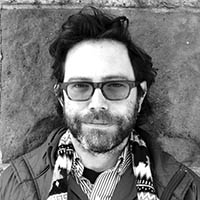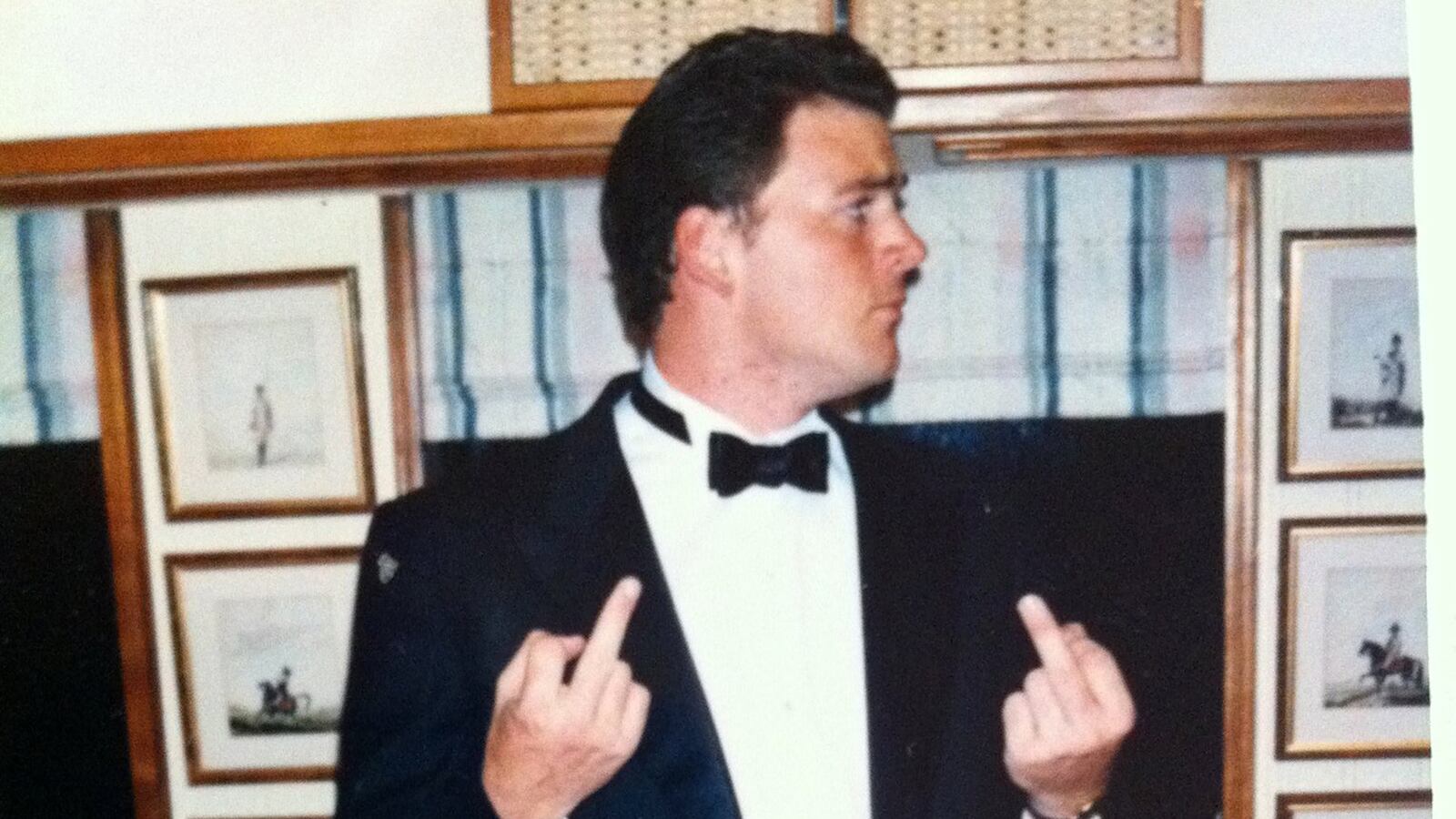If you were to enter Andrew Getty’s Montcalm Avenue villa up in the Hollywood Hills, as countless police and medical professionals have since the filmmaker and heir to America’s most storied and troubled fortunes was found dead Tuesday, what you were greeted by was likely to shock.
Standing in the foyer is a velociraptor that is over 6 feet tall and looking just as real and terrifying as anything that ran roughshod over the Cretaceous Period or stalked those kids in the first Jurassic Park.
In addition to being a helpful way to freak out houseguests or potential intruders, the paleontologically correct specimen was a perfect symbol of the Gettys and the dark legacy for which they are known the world over.
It was there by virtue of money and connections—according to friends, the piece is on loan from the Los Angeles Natural History Museum to which Andrew was a donor—and like too many members of the storied clan, its species met with a dramatic and inglorious end.
The death of 47-year-old Andrew—son of San Francisco socialites Gordon and Ann Getty and grandson of J. Paul Getty, the miserly misanthrope who was America’s first oil billionaire—was the latest tragedy to befall a family whose name has become synonymous with grand wealth and philanthropy and equally grand misfortune.
“It is sad that the Gettys have to go through this, and this is going to cause more bad publicity,” Forbes national editor Robert Lenzner and author of the J. Paul Getty biography The Great Getty told The Daily Beast. “It is sad that such a spectacle would happen to this family yet again.”
At first glance, the circumstances of Andrew Getty’s death have the markings of some kind of Victorian parlor mystery that fits all too neatly in the operatic saga of that is the Getty family story, which includes kidnapping, drug addiction, and secret families.
While anonymous sources have told news outlets that Getty was a heavy drug user, the truth behind his death seems rather quotidian: poor health.
According to reports, police were alerted to the body by Getty’s ex-girlfriend, model and aspiring actress Lanessa DeJonge, AKA Lanessa Grace.
Getty, whose body was discovered in his bathroom naked from the waist down and surrounded by blood, had filed a restraining order against DeJonge two weeks earlier in which he claimed that her presence exacerbated a serious ongoing medical condition.
While DeJonge was questioned by police as a witness, Getty’s death has been ruled the result of natural causes, though the medical examiner has yet to determine an exact cause of death.
“He had a whole plethora of medical issues,” LAPD Captain William Hayes told the Los Angeles Times. “We believe it is a natural-caused death.”
Still, that hasn’t kept people from bringing up the “C” word common to Cubs fans and actors who play Superman. “The Getty Curse,” as it is known, has stoked the public imagination for almost as long as the Gettys themselves have been striking oil.
The legend begins with J. Paul Getty, considered alongside Howard Hughes as the first modern billionaire. Getty’s business acumen—he not only scored a six-decade concession on an oil field outside of Kuwait in 1949 for less than $10 million, he learned Arabic to help seal the deal— was matched only by his cluelessness as a family man.
A notorious philanderer who was married five times, by the time he died in 1976, he had lost his youngest son, Timmy, when he died of a brain tumor at age 12 (Getty failed to attend the funeral) and his eldest son and seeming heir apparent, George, under mysterious circumstances.
According to a story Claus Von Bulow once told The Daily Beast, “He fell twice on a barbecue fork.”
Around the same time of George’s death, in 1973, came the famous kidnapping of J. Paul Getty III, the elder Getty’s grandson, in Rome by Italian gangsters.
With his father, J. Paul Getty Jr., unable to secure the roughly $17 million demanded in ransom and his grandfather unwilling to pitch in—“I have 14 other grandchildren,” he famously said at the time. “If I pay one penny now, then I’ll have 14 kidnapped grandchildren”—the kidnappers lost patience and sent a lock of hair and chunk of their hostage’s ear to his mother.
His release was eventually secured for $2.4 million (a loan from the elder Getty to his son at 4 percent interest) but the scars were permanent: J. Paul Getty III died in 2011 after years of drug use had left him paralyzed and partially blind.
Andrew’s father, Gordon, seemed to have bypassed the family’s tragic storyline.
Artistic and intelligent, he studied classical music composition at the San Francisco Conservatory of Music and became a composer and philanthropist, raising four sons in the Bay Area with wife Ann.
In 1999, however, it was revealed that Gordon had a second family, including three daughters, in Los Angeles with his mistress Cynthia Beck. “Gordon is a forgetful, dreamy fellow,” says Lenzner. “He is a hard man to truly know.”
For Lenzner, Andrew’s death is less a part of the tragic Getty storyline then the even larger American story chronicled by everyone from Edith Wharton to the Notorious B.I.G.: mo’ money, mo’ problems.
“This death is a tragedy, but as far as we know what happened was a health issue and had nothing to do with [Andrew] being a Getty,” says Lenzner. “It is a truism that the people in the top 1 percent can have bad health and relationships just as easily as the people on the lowest rung of society.”
According to those who knew him best, Andrew Getty rarely spoke about his famous family. “He didn’t really have a great relationship with his family,” said Stephen Sheridan, a friend of Getty’s for over 20 years. “He was pretty much a loner and a bit of a recluse.”
For more than a decade, Getty had been working on The Storyteller, an almost completed horror film that would have been his directorial debut. He had a collection of vintage cars and liked to tinker. Along with a couple of Picassos on the wall, his 1920s Spanish villa was filled with bits of animatronics and other gadgets he was working on.
Contrary to his skinflint grandfather, who famously installed pay phones in his English country estate because he didn’t want his workers running up exorbitant bills, friends describe Andrew Getty as generous and always willing to help out. And if he was as unhealthy as the police describe him, he did an excellent job hiding it.
“He had lost a lot of weight and was looking good,” says Sheridan. “Andrew worked out regularly in the gym in his garage and had a trainer. I just talked to him on Sunday. He just got a new drone and a camera for it and wanted me to fly it with him. The guy sounded great.”






